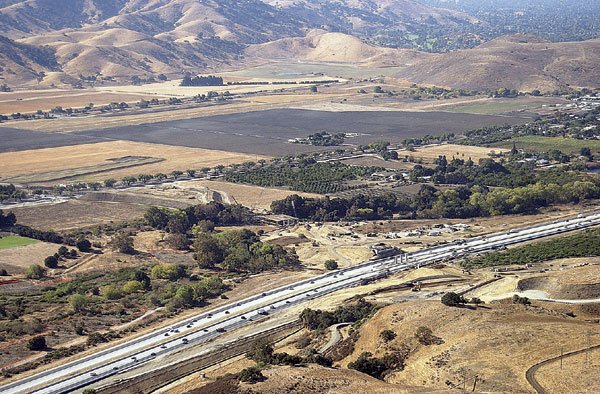The Coyote Housing Group, a group of landowners and builders
funding San Jose’s Coyote Valley Specific Plan process, announced
today that it intends to end its funding agreement with the city,
according to a press release by the group.
The Coyote Housing Group, a group of landowners and builders funding San Jose’s Coyote Valley Specific Plan process, announced today that it intends to end its funding agreement with the city, according to a press release by the group.
Over the past several months, market forces, costly planning delays and the uncertainty of the plan’s implementation due to existing development agreements and entitlements have formed a significant obstacle to the city’s ambitious, large-scale urban planning effort in Coyote Valley, the release stated. Due to a combination of these factors the Housing Group has come to the conclusion that the plan, as it stands, is no longer economically viable.
The plan is to bring 75,000 residents, 50,000 jobs and 25,000 homes to 3,500 acres just north of Morgan Hill.
“We continue to be extremely proud of the Coyote Valley Task Force and all the good work that has gone into the planning effort,” said Chris Truebridge, president of Shapell Homes, which is a member of the Housing Group. “The dedication and participation of community leaders and residents throughout San Jose has been truly extraordinary.”
The planning process for Coyote Valley was initiated by the city more than five years ago and was originally estimated to cost $10 million. To date, the Coyote Housing Group has paid more than $17 million to the City of San Jose to support the planning effort and repeated delays have put the plan significantly behind schedule.
From the outset, the unprecedented magnitude of the plan resulted in an extremely complex planning process. Moreover, complications surrounding existing entitlements in Northern Coyote Valley have caused further challenges to any implementation of the existing plan.
“Given these circumstances, there is simply too much uncertainty surrounding the plan and the market to continue as is,” Truebridge said. “We strongly believe that Coyote Valley remains a critical part of San Jose’s future and with a more realistic plan, the city can still achieve its economic development goals and meet its growth needs in an environmentally sustainable way.”













